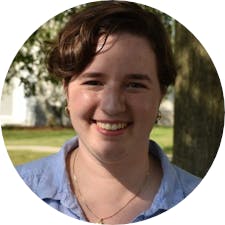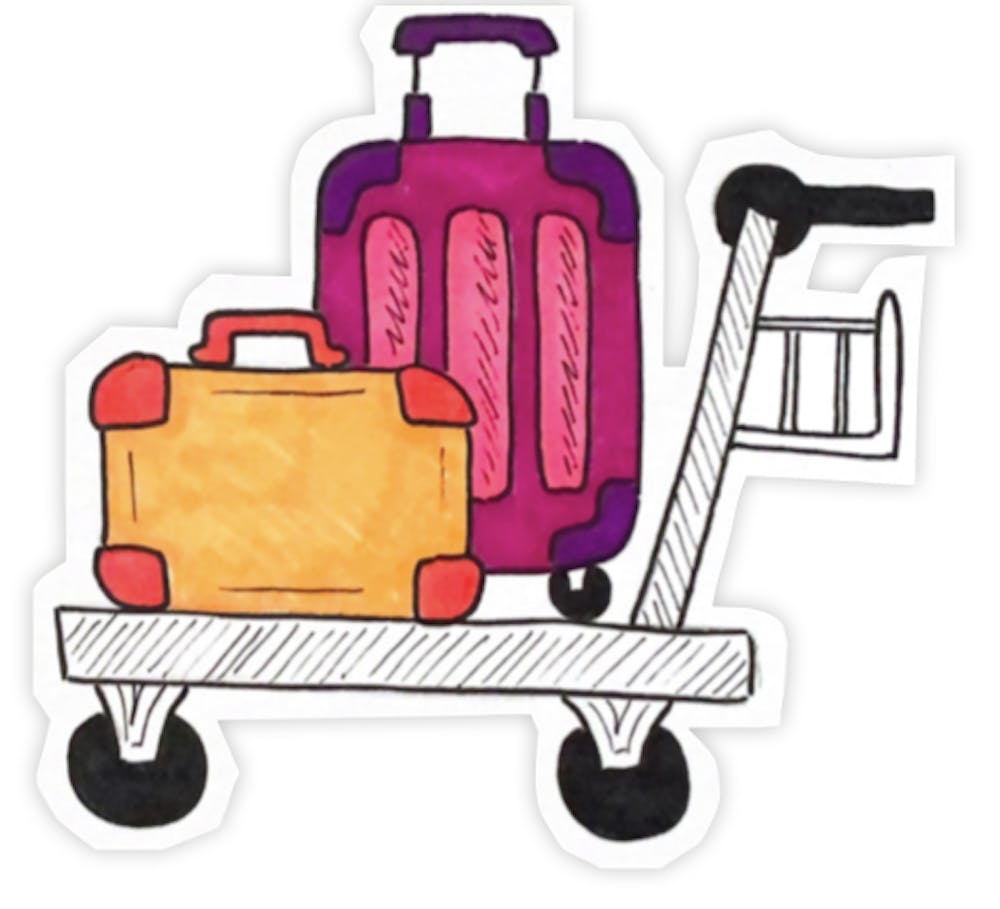When Middlebury suddenly announced it was shuttering the campus on March 10, 2020, international students were faced with a difficult decision. Should they stay or should they go home? Where would they live and how would they get home? The decisions were particularly difficult for first years, who had only just begun to adjust to life in the U.S.
Here are the experiences of three of them.
Assif-Ul Islam
Asif-Ul Islam ’23 told his parents not to pick him up at the airport. But after not seeing their son for 448 days, “they couldn’t stay away.”
When school suddenly closed in March, there were no flights to Islam’s home country of Bangladesh, so he decided to stay in the U.S. He had no idea it would be almost 15 months before he saw his family again.
His roommate’s family hosted him in the Cleveland, Ohio home throughout the duration of the spring semester. When new ICE guidelines threw student visa-holder’s statuses into question, Islam worried about getting stranded in Bangladesh should he return home. He decided to stay in the U.S. over the summer, renting an apartment in San Antonio, Texas.
His twice daily calls home did little to assuage worries. When his parents got sick and his dad’s garment factory suffered during the economic downturn, he could do nothing to help. And as cases continued to rise in the U.S., his parents also could do nothing to protect their son.
Islam had never spent such a long time away from home. He missed the comfort and ease of speaking his own language. He missed the buzz of Dhaka, the capital city of Bangladesh where he grew up. He missed the cram of the city’s 18 million residents filling the streets and the chatter of friendly passerbys greeting each other. He missed his family and his childhood friend and surrogate brother, Meshqua. And he missed seeing his now 12-year-old sister grow up.
After hugging his crying mom in the airport and traveling 20 minutes home, the reunion came as a shock to Islam. “I was like who was that? She doesn’t look like my baby sister anymore,” he said. “Her voice has changed. The way she talks has changed.”
After over a year of longing for home, living in Dhaka again was an adjustment. The busy city he had missed so much kept him awake at night as cars honked outside his window until the wee hours of the morning. But slowly, he grew accustomed once again. After a month at home, Islam rested easy.
Lynn Chai
When Lynn Chai ’23 found out about the school closing, she knew she had to act fast. Though it was 3 a.m. back home in Shanghai her parents were awake and worrying as they tried to buy plane tickets together over the phone. She managed to book a flight from Burlington to JFK and from there to home on March 15.
She made it to Burlington Airport without a hitch, but everything went downhill from there. Her flight was delayed for five hours, hours she spent anxiously checking on her connecting flight to Shanghai and watching the layover window she had carefully built shrink bit by bit.
When she arrived in JFK at last, she rushed off the plane and caught the shuttle to her departing terminal. As she waited in the shuttle car, a man approached her and asked, “Are you from Wuhan? Are you Chinese?”
When Chai didn’t respond, he pushed her six bags off her luggage trolley in anger. By the time she snapped out of her shocked silence, the train doors were opening and the man was gone. She hastily gathered her luggage and rushed to the check-in counter, only to find her plane had stopped boarding.
Feeling defeated, she called home to tell her parents what had happened and figure out her next moves. Anxious and shaken by the incident with the strange man, Chai held in her tears. “I had to pretend to be fine,” she said. “If I cried, it would make them more anxious.”
Chai spent a panicked night in the airport hotel refreshing pages over and over to find another flight home. At first, it seemed she wouldn’t be able to return until April and May even if she could afford the soaring ticket prices. Luckily, a last minute cancelation gave Chai a chance, and, though she had to spend eight times the usual price, she pounced on the opportunity. She was going home at last.
Patrick Wachira
Patrick Wachira ’23 knew he couldn’t go home. He spent the week of March 10 meeting with his commons dean, Scott Barnicle over and over again to try and figure out his next steps and get approval to stay on campus. When he found out the college was letting him stay, he felt a wave of relief wash over him.
At first, the campus was eerily quiet, filled with “the air of emptiness of a place used to having a lot of people.” But the 120 students who stayed through the spring semester quickly adjusted and made their own little community. The shrinking population gave those left on campus more opportunities to connect. As Vermont’s mud season gave way to a gloriously green spring, Wachira did most of his school work outside with friends, both new and old, “half working, half talking with friends and basking in the sun.” They went on near daily bike rides across campus and took frequent forays to Hannaford for grocery hauls, returning to the Forest kitchens to cook fried chicken, fish soup and any variety of recipes they found online.
It was an almost idyllic time in many ways, but, though he was enjoying campus life, Wachira worried for his home country. As Kenya’s economy took a hit from prolonged lockdowns, desperation increased back home and crime rates rose in the capital city of Nairobi. He watched the news daily and called home often to see how his family was doing.
After attending boarding school, Wachira was used to spending long periods of time away from home. He frequently flipped through old diary entries of days spent with family, memories he’d stored in anticipation of not seeing his family for months. After dinner, he often made himself a cup of tea, a tradition at his grandmother’s house.
Though separated by over 7,000 miles, Wachira never struggled to “feel the love” of his family back home as he surrounded himself with the love of a new family on campus.

Sophia McDermott-Hughes ’23.5 (they/them) is an editor at large.
They previously served as a news editor and senior news writer.
McDermott-Hughes is a joint Arabic and anthropology and Arabic major.
Over the summer, they worked as a general assignment reporter at Morocco World News, the main English-language paper in Morocco.
In the summer of 2021 they reported for statewide digital newspaper VTDigger, focusing on issues relating to migrant workers and immigration.
In 2018 and 2019, McDermott-Hughes worked as a reporter on the Since Parkland Project, a partnership with the Trace and the Miami Herald, which chronicled the lives of the more than 1,200 children killed by gun violence in the United States in the year since the Marjory Stoneman Douglas High School shooting in Florida.


